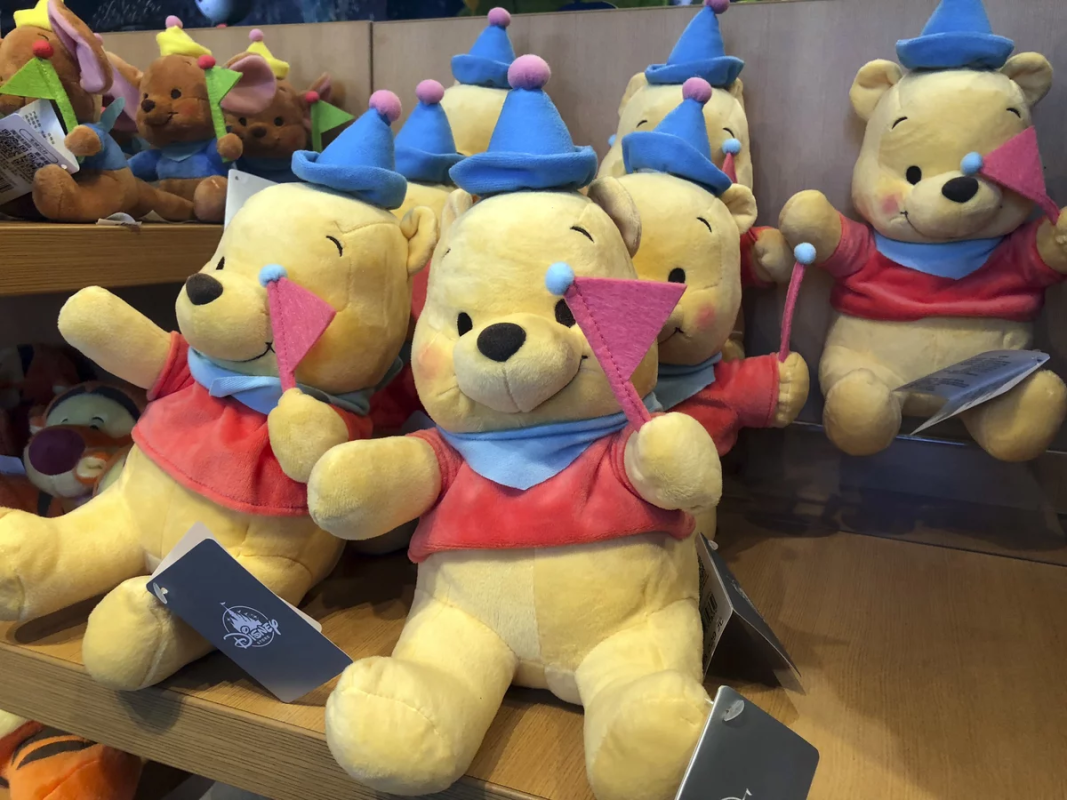No products in the cart.
Disney
Troubles arise in Hong Kong for a Winnie the Pooh horror film
A controversial and macabre horror film featuring the iconic children’s book character Winnie the Pooh has ignited a wave of discussion and speculation after its sudden removal from theaters in Hong Kong and Macau. Titled “Winnie the Pooh: Blood and Honey,” the low-budget slasher film has attracted attention not only for its unconventional and gruesome storyline but also for the potential political motivations behind its withdrawal.
While some may argue that the film’s graphic content played a role in its removal, there is growing concern that the decision is rooted in the broader context of Beijing’s ongoing suppression of civil liberties in Hong Kong. Specifically, it raises questions about the Chinese government’s efforts to quash any symbols or forms of protest, even if they come in unexpected or unlikely forms, such as a crop-top-wearing, pant-less bear.
“Winnie the Pooh has become a symbol for dissidents in China,” explains Rongbin Han, an associate professor of international affairs at the University of Georgia. “So now the character alludes to Xi Jinping himself, and the president doesn’t like this association.”
The film, written and directed by British filmmaker Rhys Frake-Waterfield, has gained a surprising amount of online popularity, exceeding expectations with its releases across Latin America and Asia. It was scheduled to debut in over 30 cinemas in Hong Kong and Macau, but the distributor, VII Pillars Entertainment, suddenly announced the cancellation of all screenings without providing a detailed explanation. The company issued a statement on Facebook, apologizing for failing to meet the audience’s expectations and seeking forgiveness without delving into the specific reasons behind the decision. NPR’s attempts to obtain further clarification from company officials went unanswered.

This is not the first time a Winnie-the-Pooh-based film has faced obstacles in China. The association between Chinese leader Xi Jinping and the character can be traced back to 2013 when social media users began comparing a photograph of Xi and former President Barack Obama to an image of Pooh and Tigger, sparking a meme that gained traction. Subsequently, critics of the government utilized the bear to satirize Xi or criticize his policies. Beijing responded by censoring the Chinese name for Winnie the Pooh and restricting the use of animated gifs featuring the lovable bear on social media platforms in 2017.
Han emphasizes that it is not Winnie the Pooh itself that is objectionable to Xi and the authoritarian regime; rather, it is the act of using the character as a proxy to denounce government policies that troubles them. This constant vigilance for perceived criticism has led to the censorship of seemingly innocuous images, coded wordplay, and even silence as a form of protest. For instance, in a rare display of public dissent, Chinese activists marched through the streets holding up blank sheets of paper as a silent message of defiance to the authorities.
Given the history and sensitivity surrounding the character, Han expresses surprise that the film was initially allowed to pass through China’s rigorous censorship system. All domestic and foreign films must undergo a strict pre-publication review process, and the government retains the authority to ban any film that fails to comply from being shown in theaters or streamed online within the country.

In addition to the political implications, Winnie the Pooh: Blood and Honey faced challenges on other fronts. For instance, China has a quota system that limits the number of foreign films distributed, prioritizing big-budget blockbusters and leaving smaller films struggling to access the market. Furthermore, China lacks a rating system for films, operating under the assumption that all movies should be suitable for general audiences. This poses inherent challenges for genres such as horror, which may not align with the country’s preference for family-friendly content.
As a result of the film’s removal, audiences in Hong Kong and Macau must wait for the possibility of experiencing the bloodthirsty version of Winnie the Pooh. Nevertheless, fans and intrigued viewers are optimistic that the film may eventually find its way to streaming platforms, offering an alternative avenue to enjoy the unconventional and controversial tale of the beloved bear-turned-psychopath.
We bring out some of the most well-known Disney collection, all of which are available at reasonable costs. Visit our link now if you are interested in the Disney collection


Mickey Mouse, Minnie Mouse, Donald Duck, Goofy, Pluto

